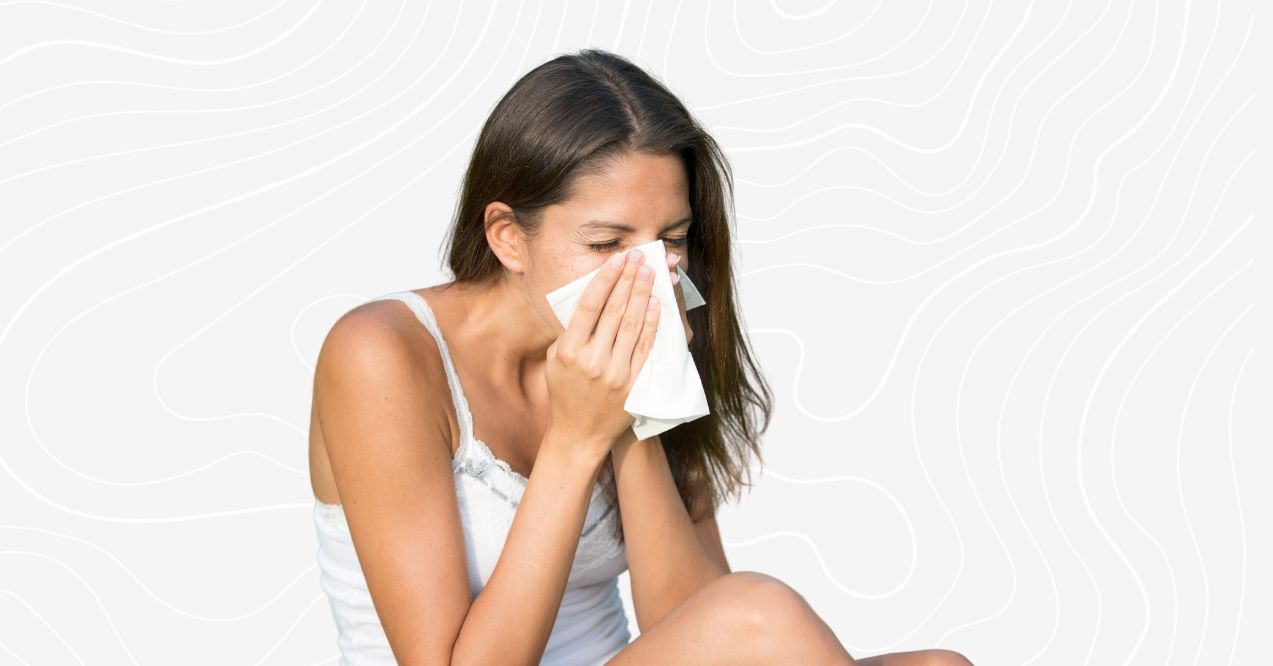

Relationship Between Gut Health and Acne
Gut health and acne – is there any relationship between the two? Your digestive system or gut is the epicenter of your whole body. Yes, you heard that right. Starting from your mental to physical health, everything can be traced back to your digestive system. In fact, the significance of gut health and its impact on our overall well-being is something that many people are starting to realize.
It’s fascinating how something as seemingly unrelated as our digestive system could have a connection to a common skin issue that affects countless individuals – acne. Dealing with acne can be quite a frustrating and emotionally challenging experience. Of course, there are various factors contributing to acne. However, scientists and curious minds alike have started exploring the intriguing possibility that our gut health plays a role in the development and intensity of this pesky skin condition.
So, gut health and acne – is there a connection here? What is gut health? What things can you do to maintain your gut health? And what are the signs of poor gut health? Now, let’s dive deeper into this subject together. After reading this post, you’ll be an expert in gut health and hormonal acne. Read on.
What Is Gut Health?
Have you ever experienced a tummy ache? Then you are aware of how it feels when your digestive system isn’t okay. You probably experienced pain, rumbles, and bloating. These signs told you that there was something wrong with your gut.
So, what is gut health? Gut health refers to the condition and functionality of your digestive system at any given time. In other words, it is the balance of microorganisms that live in the digestive tract. When everything is working well, you barely notice it. But when there is an imbalance, that’s when problems start to arise, such as bloating, pain, gas, and even acne, as research shows.
You heard that right! That stubborn acne on your face might be because of your poor gut health. One thing you can do to ensure your gut is healthy is detox. Lucky for you, here are the best gut detox practices.
The Correlation Between Gut Health and Acne
So, is there a correlation between gut health and acne? Initially, people thought that the human stomach was an isolated system. However, that isn’t the case. One key aspect of this link lies within the intricate world of our gut microbiome—the collection of trillions of microorganisms residing in our digestive tract. Did you know there are tiny organisms (bacteria, viruses, and fungi) in your gut? They are essential when it comes to breaking down food and maintaining your overall well-being.
Your gut bacteria exist in a delicate equilibrium, and when that balance gets disrupted, it can create a ripple effect on your overall health. What does this mean? Well, these imbalances don’t just affect your digestive system. They can also affect your general wellness. Recent studies have shed light on these connections, revealing the intricate relationship between our gut health and various facets of our overall fitness.
Dysbiosis and Acne
And when it comes to acne, dysbiosis might just be a contributing factor. Researchers have discovered that individuals with acne often exhibit distinct differences in the composition and diversity of their gut microbiota compared to those with clear skin. So, how does the state of our gut influence the occurrence and severity of acne?
One mechanism appears to be through the intricate interplay between our gut and the immune system. Your gut serves as a crucial hub for immune activity. So, when the balance of gut bacteria is disrupted, it can trigger an immune response that affects your skin. Technically, inflammation is the common denominator when it comes to gut health and acne.
Moreover, our gut microbiota plays a vital role in hormonal regulation, another key player in acne development. This means when there is an increase of androgens like testosterone, it might affect sebum production, clogged pores, and inflammation. All these lay the ground for acne to rear its frustrating head. Remarkably, our gut microbes have been found to influence the metabolism and balance of these hormones, further emphasizing the potential impact of gut health on acne.
The exact mechanisms and causality between gut health and acne still lack a clear revelation. However, the emerging research underscores the importance of adopting a holistic approach to tackle this skin condition. By addressing gut health alongside traditional skincare practices, we may unlock a new avenue for more effective acne management.
What Are Signs of Poor Gut Health?
Identifying signs of poor gut health can help you take proactive steps to improve it. Some common indicators include:
- Skin problems: The condition of your skin can often reflect the state of your gut. Acne breakouts, inflammatory skin issues (such as psoriasis and eczema), and persistent rashes may be indicative of underlying gut imbalances.
- Mood swings and mental health issues: The gut-brain connection is fascinating. Studies indicate that poor gut health can impact our mood and mental well-being.
- Weakened immune system: A healthy gut is closely linked to a robust immune system. If you find yourself frequently falling ill, having persistent headaches, catching infections easily, or experiencing prolonged recovery periods, it could be a sign that your gut health needs attention.
- Digestive issues: One of the most noticeable signs of poor gut health is digestive discomfort. Do you experience bloating, gas, diarrhea, constipation, or even irregular bowel movements? If so, it may indicate that your gut is not functioning optimally.
How Can I Support My Gut?
Looking for ways to support your gut? Luckily there are some practical things you can do to help ensure your gut health is optimal. It’s time to gain control of your gut health and hormonal acne.
1. Keep a Clean Diet
When it comes to nurturing your gut health, minimizing or eliminating processed foods, and maintaining a clean, nutrient-packed diet encompassing the rainbow, take center stage. You need to give your body the right fuel it needs to thrive. This means you should eat foods packed with fiber, vitamins, and minerals. These nutritional powerhouses help nourish your gut microbiome, promoting a diverse and thriving community of beneficial bacteria. Strive to choose non-GMO, organic, or pesticide-free options which don’t harm your gut bacteria. Ensure you eat a wide variety:
- Fresh fruits
- Leafy greens
- Whole grains
- Legumes
Incorporating lean proteins into your diet is another vital aspect of supporting your gut health. Choose sources like pasture-raised poultry, wild-caught fish, tofu, and legumes, which offer essential amino acids for cell repair and growth and avoids harmful hormones and antibiotics.
Don’t forget about hydration! Taking enough water throughout the day helps maintain the balance of your digestive system. Hydration supports optimal digestion and helps ensure that waste products move smoothly through your gut, preventing potential issues.
2. Reach for Fermented Foods
Yogurt, sauerkraut, and kimchi are delicious and nutritious foods containing probiotics. Probiotics are “good” bacteria that can help to improve gut health and potentially reduce acne. Including these fermented goodies in your diet can help enhance your general health and well-being. These little superheroes help keep harmful bacteria at bay, support digestion, and even give your immune system a boost.
When you incorporate fermented foods into your meals, you’re introducing a diverse range of probiotics that can replenish and maintain a thriving gut microbiome. For instance, yogurt is a classic choice full of live cultures like Lactobacillus and Bifidobacterium. Aim for plain, unsweetened varieties to avoid added sugars, and if you have specific dietary preferences or restrictions, explore Greek yogurt or dairy-free alternatives.
So, add fermented foods to your regular diet. This move will ensure a steady supply of probiotics to support your gut health. However, remember to maintain moderation and balance. Start by introducing small portions and observe how your body responds.
3. Stay away From Any Sweeteners That Aren’t Natural
Want to have a healthy gut? Avoid artificial sweeteners at all costs. These synthetic alternatives disrupt the delicate balance of your gut microbiome, thus affecting your overall health. Instead, choose natural sweeteners like maple syrup or honey. These natural sweeteners add a touch of sweetness and possess gut-friendly properties.
Artificial sweeteners have been associated with various health concerns and can throw off the composition of your gut bacteria. This imbalance may lead to digestive issues and could even worsen acne breakouts. On the other hand, natural sweeteners provide a more wholesome choice.
Take honey, for example. Besides its sweet taste, it also contains beneficial enzymes and antioxidants. Maple syrup, with its rich flavor, offers antioxidants and minerals that can support your body’s natural processes. If blood sugar concerns you, gut-friendly natural alternatives such as stevia, erythritol, xylitol, or monk fruit sweetener won’t raise levels. So, make the switch to these natural alternatives today. Your gut will appreciate it, and you’ll be taking another step towards supporting a healthier gut environment, which may help reduce the occurrence of acne breakouts along the way.
4. Be Mindful of Medications
Of course, we’re not implying that you must avoid taking prescribed medicine. However, knowing the side effects of the medicine you are taking, especially on your digestive system, is essential. Some medications, like antibiotics, have the ability to disturb the delicate balance of your gut microbiome.
This disruption in the balance can lead to digestive issues and potentially affect your skin health, including acne. To minimize these effects, discussing the potential impact on your gut health with your healthcare provider is crucial. In some cases, your healthcare practitioner may recommend taking probiotic supplements two hours before or after taking antibiotics.
These supplements can help replenish the beneficial bacteria in your gut and support a healthier microbial balance. So, ensure you talk to your doctor first. They can provide personalized recommendations and guide you in making informed decisions that support both your overall well-being and gut health.
5. Take Care of Your Teeth
Caring for your pearly whites goes beyond just having a beautiful smile—it’s actually crucial for your gut health, too. It’s fascinating to discover that taking care of your oral hygiene plays a significant role in supporting a healthy gut.
Neglecting your teeth can lead to an excess production of harmful bacteria in your mouth. And guess what? These unwelcome guests can eventually make their way to your gut, potentially disrupting the delicate balance of bacteria there. This can result in issues like gum disease, tooth decay, and bad breath. But it doesn’t stop there. The bacteria that accumulate in your mouth can travel through the digestive system, thus disrupting the balance of our gut microbiome. This imbalance can contribute to digestive problems and inflammation and even impact our overall well-being.
Furthermore, don’t forget to schedule regular dental check-ups and cleanings with your dentist. They can help detect any potential issues early on and provide professional care to maintain your oral health. So, remember to prioritize your oral hygiene to promote a healthier gut.
6. Monitor Your Hormone Levels Regularly
Are you someone who’s prone to breakouts? It’s a good idea to monitor your hormone levels more often. This way, you can uncover any underlying issues and take steps toward addressing them. Seeking guidance from a healthcare professional is key in this process.
Hormones are powerful messengers in our bodies. So, when they get out of whack, it can trigger some symptoms, including skin concerns like acne. Monitoring your hormone levels more often will provide insights into any imbalances that may be affecting your gut health and contributing to breakouts.
To get started, consult an endocrinologist, a healthcare professional specializing in hormonal health. They can recommend appropriate tests to assess your hormone levels and identify any abnormalities. With the results in hand, they can provide tailored guidance and potential treatments to rebalance your hormones and support a healthier gut.
Prebiotics and Probiotics for Acne
When it comes to addressing gut health and acne, incorporating prebiotics and probiotics can be a game-changer. Remember, an imbalanced microbiome can significantly influence acne, so promoting balance to your gut bacteria is a crucial step toward improving your skin.
Probiotics
Let’s start with probiotics, the superheroes of healthy gut bacteria. They are usually found in foods like yogurt or in supplement form. Supplements can help with gut detox. There are various supplements in the market that can help you. Products such as Trumeta Metabolic Greens supports several aspects of gut health which correlates to acne issues. However, before you use a supplement, ensure you consult with your doctor.
Probiotics work wonders by replenishing your gut microbiome with an army of good bacteria. As an added bonus, these friendly troops help evict the unwanted harmful bacteria that may be causing trouble. In addition, we have prebiotics, which fuels the probiotics, support the mucosal layer and gut lining, and improve nutrient absorption that promotes healthy skin. Think of them as the food that fuels the growth of the beneficial soldiers in your gut microbiome and fortifies your gut health.
Prebiotics
You can get prebiotics from various sources like garlic, onions, and bananas. By consuming prebiotic-rich foods, you’re essentially boosting the population of good bacteria in your gut and helping to fend off the bad bacteria. When aiming to optimize balance to your gut microbiome and improve your acne, incorporating prebiotics and probiotics becomes essential. It’s like unleashing a powerful army that can defeat the imbalanced forces wreaking havoc on your gut and skin.
Visualize the imbalanced microbiome as a battlefield between harmful and good bacteria within your gut and skin. To win the battle, your good bacteria must overthrow the bad bacteria and fix the problems it causes, such as inflammation and leaky gut, which contribute to acne. By introducing more good soldiers (probiotics) and providing them with the necessary supplies (prebiotics), you ensure a robust and mighty army ready to claim victory.
Final Thoughts
And that’s everything you need to know about gut health and acne. You should understand by now that taking care of your gut health benefits your digestion and your skin’s appearance. By adopting a clean diet, incorporating fermented foods, maintaining good oral hygiene, avoiding artificial sweeteners, being mindful of medications, and monitoring your hormone levels, you can support your gut and potentially reduce the occurrence of acne. Remember, a healthy gut leads to a healthy, glowing complexion!
Gut health plays a crucial role in maintaining overall well-being, including skin health. A balanced gut microbiome supports efficient digestion and helps reduce internal imbalances that may lead to skin irritations. By promoting a healthy gut, you may also support clearer skin and a more vibrant complexion.
To support gut health and potentially enhance skin appearance, consider adopting a clean, nutrient-rich diet, incorporating fermented foods, and staying hydrated. Avoiding artificial sweeteners, practicing good oral hygiene, and being mindful of medications can further promote gut balance and overall skin health.
Yes, by supporting a healthy gut, you may help reduce the factors that contribute to acne. A balanced gut microbiome aids in digestion and supports hormonal regulation, which can lead to a reduction in skin irritations, promoting a clearer and more radiant complexion.
Advertisement. This site offers health, wellness, fitness and nutritional information and is designed for educational purposes only. You should not rely on this information as a substitute for, nor does it replace, professional medical advice, diagnosis, or treatment. If you have any concerns or questions about your health, you should always consult with a physician or other health-care professional. Do not disregard, avoid or delay obtaining medical or health related advice from your health-care professional because of something you may have read on this site. The use of any information provided on this site is solely at your own risk.








